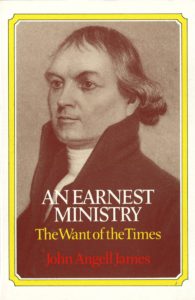
I remember hearing an interview with Carl Trueman about Martyn Lloyd-Jones’ book Preaching and Preachers.
In it, he said, “Half of the book is brilliant, and half of it is completely bonkers. . . . Lloyd-Jones has these sections where he talks about ‘unction.’ And these things have gripped a variety of people who have read this book. Lloyd-Jones talks about going into the pulpit on some days, and he’s flying. He’s got unction. Other days he goes into the pulpit and the unction just isn’t there. My experience has been that I can go into the pulpit and think that I am flying, and a lot of people think I’ve preached a complete clunker. . . . I’ve become aware that how I respond to the sermon is no guide for how the congregation responds. I have a feeling that Lloyd-Jones is confusing—dare I say it—‘carnal response’ to his sermons with the action of the Holy Spirit.”
I understand what Truman is saying. Preachers are not infallible interpreters of how their sermon goes. In my ministry, it’s common to think I preached an excellent sermon only to discover the majority found it ho-hum. It’s also frequent to believe my sermon was a disaster only to find out it helped an enormous swath of the congregation. Dr. Trueman is right on this point.
But we should not throw out the notion of unction altogether. It’s in the Scriptures. Church history testifies to its reality.
Defining the Indescribable
Part of the problem in discussion unction relates to how we define it. Its nature makes it almost ineffable. As Alexandre Vinet, the French preacher, said, “Unction is felt, and known by experience; it cannot be analyzed. It produces its impression secretly, and without the aid of reflection. It is communicated in simplicity, and received in the same manner by the heart, into which the warmth of the preacher passes. Ordinarily, it produces its effect without awakening our consciousness of its presence, and without our being able to render a reason to ourselves of the impression which it has produced upon us. We feel,—we experience,—we are moved,—we can hardly assign a reason, why.”
To say the experience of spiritual power in preaching is hard to describe is different than saying it’s impossible to describe. There are multiple places in Scripture where we discover what happens when the Spirit falls on a preacher.
5 Marks of Unction
As I read the Bible, there are at least five things that can be true when the Spirit arrives with unusual force in the preaching. Unction doesn’t mean all five happen at once. More often than not, it may be more like a momentary combination of a couple of these points.
Unction enflames the preacher. The Spirit falls on the apostles in Acts 2 and tongues of fire fly over them. On the road to Emmaus, Jesus’ teaching strangely warmed the hearts of the disciples (Luke 24:32). YHWH commissions Jeremiah and says, “Behold, I am making my words in your mouth a fire” (Jer. 5:14). No doubt, this enflaming passion came to mark Jeremiah’s ministry, as he said, “If I say, ‘I will not mention him, or speak any more in his name,’ there is in my heart as it were a burning fire shut up in my bones, and I am weary with holding it in, and I cannot” (Jer. 20:9).
Unction gives the preacher a sense of unworthiness. God’s spirit is the Spirit of holiness (Rom. 1:4). When the Spirit falls, there is inevitably a sense of one’s unworthiness. The preacher’s disposition is that of Isaiah, who cried, “Woe is me!” (Isa. 6:5). To preach about Christ’s salvation and man’s sin without any pathos, without any sense of an affected heart, is to preach the Good News without the Spirit.
Unction stamps the preacher with the seal of God’s authority. John Owen, in a sermon titled, “The Duty of a Pastor,” said authority is required of God’s preachers. He asks, “What is authority in a preaching ministry? It is a consequent of unction, and not of office. The scribes had an outward call to teach in the church; but they had no unction, no anointing, that could evidence they had the Holy Ghost in his gifts and graces. Christ had no outward call; but he had an unction.” Remember the times when Jesus’ preaching left the crows and religious leaders marveling, for he spoke “as one who had authority” (e.g., Matt. 7:28–29).
Unction provides unprepared-for clarity. Sermon preparation is often little more than working for clarity in exposition and application. But there are times in preaching when unexpected clarity comes. You say something better than you thought you would. An unanticipated logic flies from your lips. That’s the Spirit’s work! Jesus told his disciples that times would come when persecution would require extemporaneous preaching. He comforted them by saying, “When they bring you before the synagogues and the rulers and the authorities, do not be anxious about how you should defend yourself or what you should say, for the Holy Spirit will teach you in that very hour what you ought to say” (Luke 12:11–12).
Unction brings boldness related to the matters of eternity. Courage in preaching Christ might be the most common facet of unction. Trace out the theme of boldness in Acts 4 and see what this meant for the apostles’ ministry. In Acts 4:13, the religious leaders “saw the boldness of Peter and John, and perceived that they were uneducated, common men, they were astonished. And they recognized that they had been with Jesus.” In 4:29, the believers pray in the face of opposition, “Lord, look upon their threats and grant to your servants to continue to speak your word with all boldness.” The prayer is answered through the Spirit, as Acts 4:31 says, “And when they had prayed, the place in which they were gathered together was shaken, and they were all filled with the Holy Spirit and continued to speak the word of God with boldness.” Sinclair Ferguson says,
“The hallmark of the preaching which the Spirit effects is ‘boldness’. . . As in the Old Testament, when the Spirit fills the servant of God he ‘clothes himself’ with that person, and aspects of the Spirit’s authority are illustrated in the courageous declaration of the word of God. This boldness appears to involve exactly what it denotes: there is freedom of speech. We catch occasional glimpses of this in the Acts of the Apostles. What was said of the early New England preacher Thomas Hooker becomes a visible reality: when he preached, those who heard him felt that he could pick up a king and put him in his pocket!”
How Do We Get It
The five points above give shape to how we understand unction. But how do we pursue it? That’s what we’ll think about in Part 2.

 James’ heart burns for passion in the pulpit. He’s on point with what’s necessary for heralding Christ. He knows that it’s not until the preacher’s heart is right that his sermon will cut straight. Listen to what he says is “the essential qualification” for earnestness in the ministry:
James’ heart burns for passion in the pulpit. He’s on point with what’s necessary for heralding Christ. He knows that it’s not until the preacher’s heart is right that his sermon will cut straight. Listen to what he says is “the essential qualification” for earnestness in the ministry: